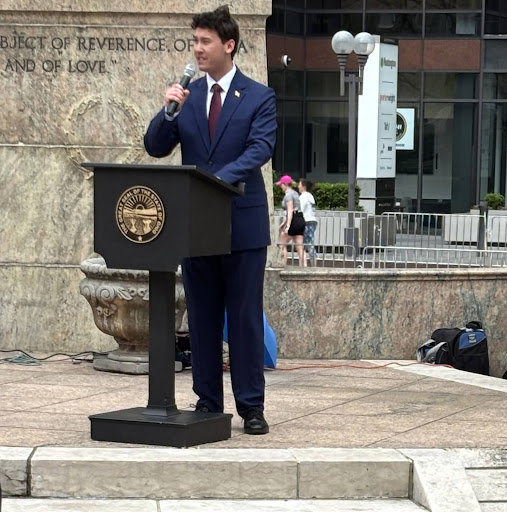
Senator Cirino’s SB1 comes after the national context where the federal government, under President Trump, has pushed back against the DEI policies that were ushered in under the last administration. President Trump has already issued Executive Orders abolishing various DEI policies from the military to the rest of the federal workforce. Senator Cirino’s bill, however, aims closer to the average American, more specifically students, and while Executive Orders are not permanent, SB1 will be more lasting – at least as far as Ohio is concerned. The bill, titled the Enact Advance Ohio Higher Education Act, seeks to do away with mandatory training, programs, and classes associated with DEI, that is, Diversity, Equity, and Inclusion – a liberal rebranding of the unconstitutionally administered affirmative action programs that discriminated against merit.
“My bill will return our public universities and colleges to their rightful mission of education rather than indoctrination,” remarked Sen. Cirino. “We also must return to teaching students how to think rather than what to think, and how to listen to opposing views with a respectful but critical ear.” The senator continued to later add, “Every student in Ohio deserves a quality education, regardless of race, gender, or religion … But DEI programs hinder that goal because they are inherently discriminatory, and should not be supported by taxpayers.”
Senator Cirino, according to his ohiosenate.gov news page, spent three years forming the research and building the framework for his bill; consulting with academic experts, students, college campus administrators, and those that this bill seeks to help.
SB1 later would pass the Ohio House after an easy passage through the Senate. In the Ohio House, the bill received great resistance from the Ohio House Democrats, even citizens in the gallery, with one man being escorted out after shouting profanities. Additionally, dozens of protestors descended on the Ohio Statehouse to voice their opposition to the bill. According to the Ohio Capital-Journal, more than 800 people submitted testimonies against SB1.
Democratic legislator, Hamilton-raised and first black mayor of Toledo, State Senator Paula Hicks-Hudson [D-Toledo], joined many of her Democratic colleagues from both houses in condemning the passage. She expressed her fears that SB1 would drive away students looking to come to Ohio to enjoy our nationally ranked universities.
“It is interesting that this is the number one priority of the majority members of the 136th General Assembly when there are real issues of hunger, the need for property tax relief and affordable housing, or any of the basic issues that most Ohioans actually care about,” Sen. Hicks-Hudson stated. “We need to talk about education. We should focus on providing necessary support so that students go to school ready to learn and graduate with skills to compete in the world economy.”
Shortly after passing the Ohio House, Governor DeWine was joined by State Senator Cirino and State Representative Josh Williams [R-Sylvania] in a bill signing ceremony where SB1 was put into Ohio law.

















